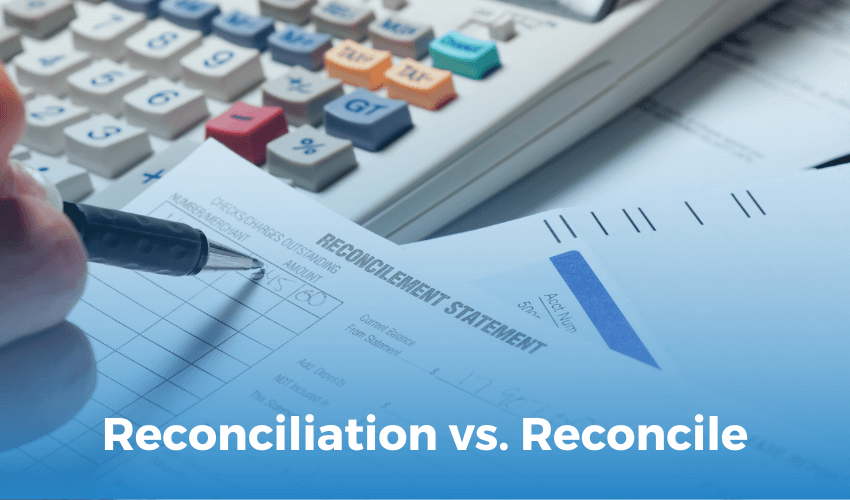

08-08-23
What is Financial Reconciliation?
In the world of finance and bookkeeping, maintaining accurate records is essential for the success of any business. Among the many crucial processes involved, reconciliation plays a vital role. But wait, don't confuse it with the act of "reconciling." Though the two terms might sound similar, they serve different purposes and are critical in their own right.
Let's start by unravelling the concept of financial reconciliation. In accounting, reconciliation refers to the process of comparing two sets of financial records to ensure they are in agreement and accurate. Typically, this involves matching transactions between different accounts, such as bank statements, credit card statements, and general ledger entries, to identify discrepancies.
The Importance of Reconciliation in Bookkeeping
When it comes to maintaining accurate financial records, reconciliation plays a pivotal role in ensuring the health and success of your business. Reconciliation is the process of comparing financial data to identify discrepancies, ensuring that all accounts are in balance, and rectifying any inconsistencies. It involves matching transactions from various sources to your company's records to achieve accurate and reliable financial statements.
The Power of Reconcile in Bookkeeping Efficiency
Reconcile, on the other hand, refers to the actual action of balancing accounts and resolving discrepancies. It involves scrutinizing individual transactions, such as bank statements, credit card transactions, and invoices, to ensure they align with your company's books. Reconciling your financial data regularly helps prevent errors and fraud, providing you with a clear picture of your business's financial health.
The Advantages of Regular Reconciliation
Accurate Financial Reports: By performing regular reconciliations, you can be confident that your financial reports present a true and up-to-date representation of your business's financial status. This accuracy is essential for making informed decisions and gaining the trust of stakeholders.
Identifying Discrepancies: Reconciliation allows you to identify discrepancies and errors in your financial records quickly. Whether it's an overlooked transaction or a potential case of fraud, prompt reconciliation helps you catch and address these issues before they escalate.
Mitigating Risks: Regular reconciliation acts as a risk management tool. It helps detect inconsistencies that could lead to costly errors and potential legal and compliance issues, saving your business from financial setbacks.
The Reconcile Process: A Step-by-Step Guide
Gather Financial Data: Collect all relevant financial documents, such as bank statements, credit card statements, and invoices.
Compare Transactions: Match each transaction from external sources to your company's records.
Identify Discrepancies: Note any discrepancies or differences between the two sets of data.
Rectify Inconsistencies: Investigate and correct any discrepancies found during the comparison.
Update Financial Records: Once discrepancies are resolved, update your financial records to reflect accurate data.
The Role of Technology in Reconciliation
In the digital age, leveraging advanced bookkeeping software can streamline and automate the reconciliation process. This not only saves time but also reduces the likelihood of human errors. Additionally, cloud-based accounting tools enable real-time data access, making reconciliation more efficient and effective.
In conclusion, while "reconciliation" refers to the overall process of comparing financial data, "reconcile" is the actionable step of balancing accounts and rectifying discrepancies. Both are crucial aspects of bookkeeping that contribute to accurate financial reporting and business success. By incorporating regular reconciliation and embracing technological solutions, businesses can stay on top of their financial game and make informed decisions that drive growth and profitability.
Financial reconciliation and the act of reconciling are two essential pillars of efficient financial management. While reconciliation ensures accuracy and identifies discrepancies, reconciling ensures that your financial records are in harmony with external statements, such as bank statements.
At 360 Accounting Pro Inc., we offer a wide range of financial services to simplify your accounting processes and provide you with the insights needed to thrive in today's competitive business landscape. Let us be your partner in financial success!
If you have any questions or need expert advice on financial reconciliation or any other accounting-related matters, don't hesitate to contact us. Our team is always ready to assist you.
Remember, with 360 Accounting Pro Inc. by your side. You can master your finances and take your business to new heights!
Tags :













































.jpg)
.jpg)
.jpg)
.jpg)


).jpg)














 Get A Quote
Get A Quote
Leave A Comment